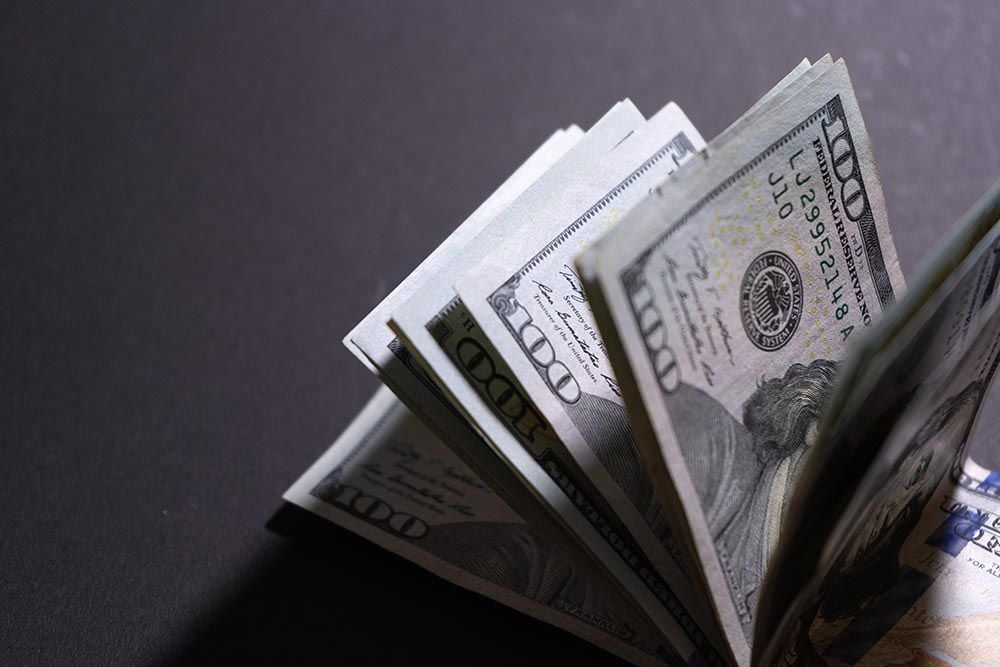Dollar Not Ready to Resume Trend Higher against Pound and Euro says Soc Gen's Juckes
- Written by: Gary Howes

Image © Adobe Images
The Pound and Euro fell sharply against the Dollar in response to Tuesday's U.S. inflation reading, but in midweek trade both European currencies have pared a good portion of these losses.
The inability of the Dollar to press new multi-year highs is to be expected according to Kit Juckes, Head of FX Research at Société Générale, who is looking for more "choppy" trade in the near-term.
The Dollar rose sharply after data showed U.S. inflation is running hotter than markets were expecting, meaning the Federal Reserve will be emboldened in its desire to raise interest rates.
Stocks fell and the safe-haven high-yielding Dollar jumped after U.S. headline CPI inflation rose 8.3% year-on-year in August, defying expectations for a reading of 8.1%, nevertheless it was still lower than July's 8.5%.
But the month-on-month measure rose 0.1% said the BLS, up on July's 0% read and defying expectations for -0.1%.
For the Fed it will be the core inflation reading that is of most concern.
Core CPI rose 0.6% in August, doubling the 0.3% the market was expecting and the 0.3% July outcome.
"Almost every measure of US inflation, other than headline CPI, is rising again. The Cleveland Fed’s trimmed mean at 7.2%, and core rate of 6.3% excluding food, energy, shelter, used cars and trucks, stand out. Inflation is becoming ingrained, thanks to strong demand, a strong labour market and accelerating wage growth," says Juckes in a note following the inflation release.
"The FOMC has no choice but to plough on with aggressive monetary tightening," he adds.
GBP to USD Transfer Savings Calculator
How much are you sending from pounds to dollars?
Your potential USD savings on this GBP transfer:
$1,702
By using specialist providers vs high street banks
A 75 basis point hike is a nailed-on certainty according to money market pricing, however the tail-risk surprise has shifted from a 50bp hike to a 100bp hike.
This tells where the momentum lies: further rate hikes will mean the peak in the Fed Funds rate is now higher than where it was expected to be prior the inflation release.
"Inflation is becoming ingrained, thanks to strong demand, a strong labour market and accelerating wage growth. The FOMC has no choice but to plough on with aggressive monetary tightening. Just as there was more and more talk of a soft landing, the danger is that hitting the inflation nut hard enough for it to crack, breaks the table it’s sitting on. A higher peak in rates is likely and a hard landing is more likely too, but not yet," says Juckes.
He says the market's response to the inflation data was dramatic because the 'inflation is peaking' narrative had fuelled the soft-landing story and helped equities rally.
"Where do we go now? The dollar got a lift, but I don’t think this latest surge can take us very far," says Juckes.
He notes although the market has pushed up pricing of terminal Fed Funds by almost 50bp in a week, to above 4%, the Dollar Index is pretty much where it was a week ago.
"It still seems more likely that EUR/USD, GBP/USD and most of the major crosses settle for a period of choppy range-trading, with volatility staying elevated, rather than we see the start of a new dollar uptrend," says Juckes.
The Pound to Dollar exchange rate fell to a low of 1.1489 in the wake of the inflation numbers, but remained above the Sept. 07 Low at 1.1406.
At the time of writing the pair is at 1.1557, taking exchange rates for dollar payments at the major high-street banks to around 1.1330. Rates offered by independent payment specialists are meanwhile closer to 1.1525.




